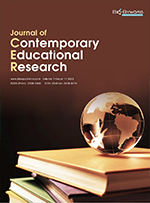Abstract
The novel The Rise and Fall of Wing Shing Street delves into the reality of Hong Kong residents deeply attuned to spatial awareness but detached from temporal significance, entangling emotions surrounding time and space. Through narrative interruption and extension, the author portrays the genuine struggles of Hong Kong inhabitants – juxtaposing the blurred boundaries of time and space and the inherent rootlessness of reality within a fictionalized framework. Emphasizing the 20th-century human condition, wherein spatial awareness overshadows temporal understanding, the novel underscores the consequences: a loss of history and cultural identity. With a fresh perspective, the narrative explores the interplay of time and space, accentuating both the fictitious and authentic dimensions. This prompts readers to reconsider their history, culture, and the current moment, ultimately highlighting the pivotal role of temporal awareness.
References
Dong Q, 2014, The Rose of Names: A Collection of Short and Medium-Sized Stories (Part I), Lianjing Publishing House, Taiwan.
Frank J, 1991, Spatial Forms in Modern Fiction, Rutgers University Press, New Jersey.
Abbas A, 1997, Hong Kong: Culture and the Politics of Disappearance, University of Minnesota Press, Minneapolis.
Sartre J-P, 1963, Time in Faulkner: The Sound and the Fury, in William Faulkner: Three Decades of Criticism, A Harbinger Book, New York.
White H, 2010, The Fiction of Narrative: Essays on History, Literature, and Theory, 1957–2007, Johns Hopkins University Press, Baltimore.
Wu X, 2003, From Kafka to Kundera, Life-Reading-Xinzhi Sanlian Bookstore, Beijing.
